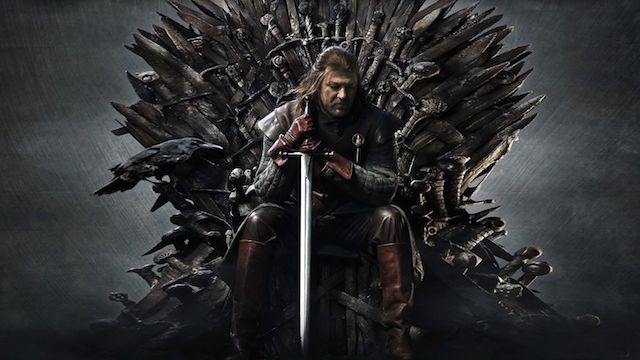So farewell, then, Tywin Lannister, you truly were the people’s Hand of the King. But this being Game of Thrones, it was never going to last, and now you’ve been shot with a crossbow by your dwarf son while sitting on the toilet. Not how you envisioned it all ending, I imagine.
The final episode of season 4 has left us bereft at the thought of another year to fill with our empty, meaningless lives; it saw Jon Snow going off to kill Mance Rayder, the rather likeable leader of the Wildlings, a suicide mission that would entail Snow breaking the rule of hospitality, which is especially sacred in Westeros (as it was in most of the ancient world from which George RR Martin drew his books).
When Stannis Baratheon turns up and saves the day, Snow is merciful to Mance, as Mance was to him in captivity, suggesting Stannis treated him well. Snow, who many people think will end up on top when the seventh book finally ends, has gone rather Stockholm Syndrome about the Free Folk, as he even calls the Wildings (the more PC term. Put it this way – if the Seven Kingdoms had a metropolitan elite, which it obviously doesn’t, that’s the term they’d use.)
Another Wilding, Tormund, tells Jon Snow that the departed Ygritte loved him, because ‘all she ever talked about was killing you. That’s how I knew.’ (Incidentally, both Rose Leslie, who plays Yrgitte, and Kit Harrington, who plays Snow, are descended from Charles II – which says something about the acting profession today).
Meanwhile Daenerys’s campaign of liberation through Slavers’ Bay has started to resembled a cack-handed case of liberal intervention; she now finds that, having overthrown the ‘masters’, her invasion has allowed the city to descend into violence and some of the former slaves would prefer the comfort of chains to the anarchy of ‘liberation’. No doubt she’ll turn up in ten years’ time blaming her successors for the whole thing, without whom the whole scheme would have gone perfectly to plan.
Beyond the wall Bran Stark and his entourage finally make it to the Children of the Forest, the oft-mentioned first inhabitants of the island, a related species who after conflict and peace with the First Men were driven into near extinction by the arrival of another group, the Andals. The Children have some resemblance to the indigenous people of Ireland, who may have been the basis for the mythical leprechauns when later Celtic speakers arrived. The Andals, blond-haired people who arrived from the north-western corner of the continent across the Narrow Sea, are clearly based on the Angles – as I write in The Realm, Martin drew heavily on British history for his inspiration.
The show ends with Arya Stark, having watched the Hound die (or did he?), taking flight to Bravos, in a scene that shows the sheer beauty of Northern Ireland in full. With any luck it will do for the province, tourism wise, what Lord of the Rings did for New Zealand. They deserve it; after all, twenty years ago they were living Game of Thrones.
The highlight though was obviously Tyrion Lannister’s mini-killing spree; his brother Jaime, who started out as the major villain of the series, having attempted to murder a boy in episode one, emerges into a more complex character as the books progress; Tyrion, the main character with whom we can sympathise in the early series, is becoming darker and more twisted. That’s why we love Thrones, after all.







Comments